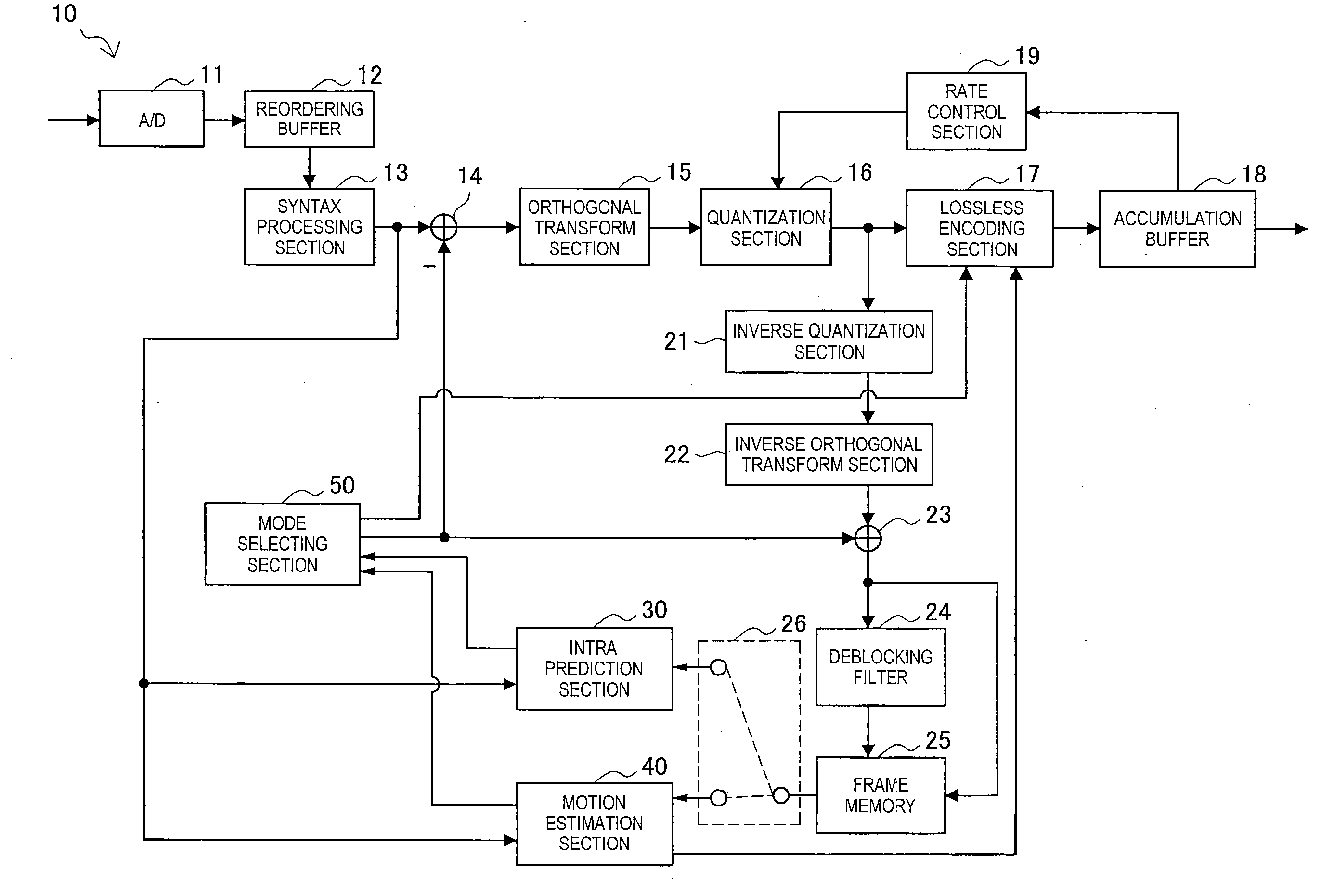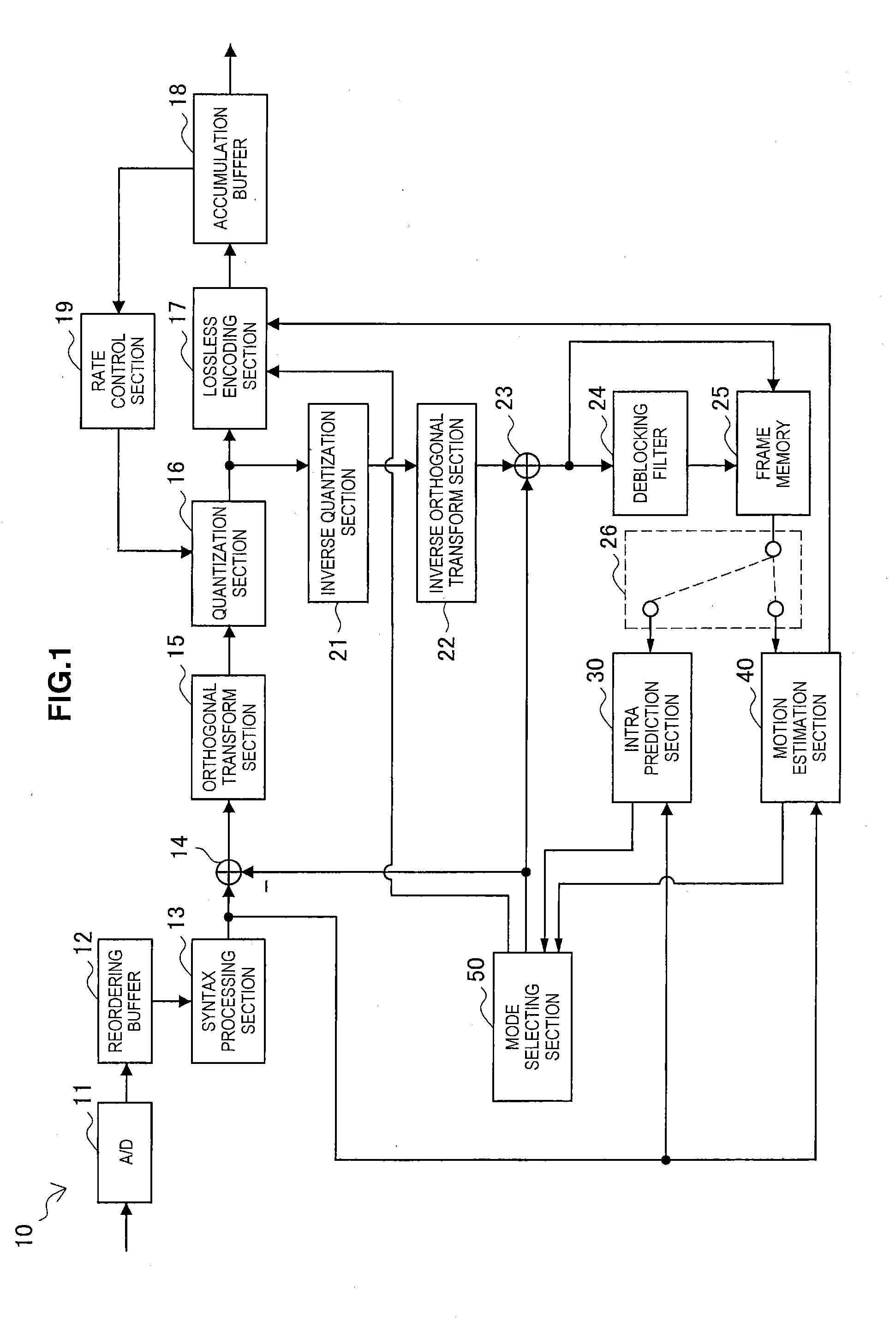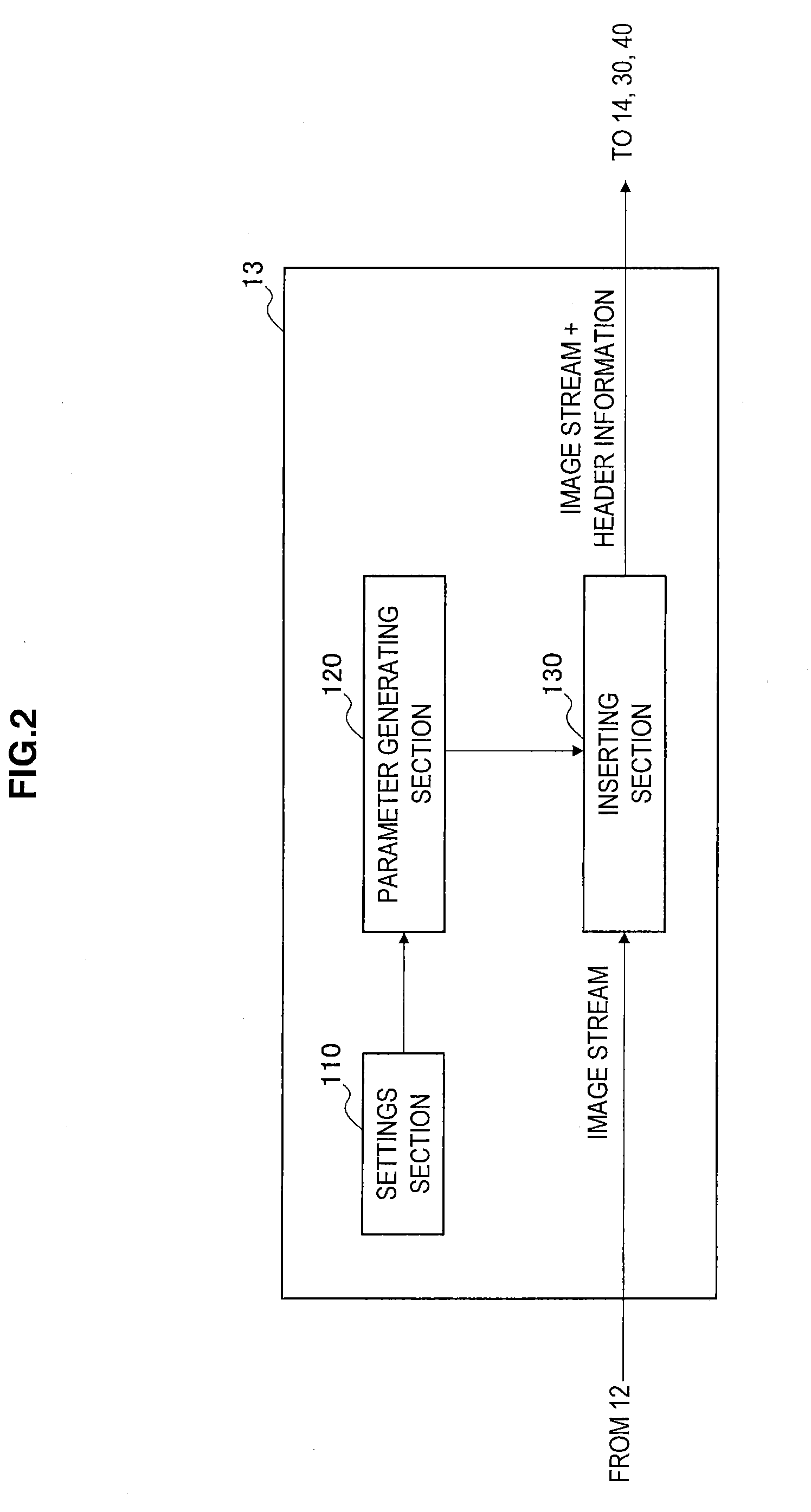Image processing device and image processing method
a technology of image processing and image processing, which is applied in the direction of signal generators with optical-mechanical scanning, color television with bandwidth reduction, etc., can solve the problems of reducing encoding efficiency and risk that such decreases in encoding efficiency accompanying the update of quantization matrix may become even more significant, and achieve the effect of moderated encoding efficiency
- Summary
- Abstract
- Description
- Claims
- Application Information
AI Technical Summary
Benefits of technology
Problems solved by technology
Method used
Image
Examples
first example
5-1. First Example
[0180]FIGS. 13 to 15 illustrate a first example of illustrative pseudo-code expressing the syntax of a QMPS according to the present embodiment. Line numbers are given on the left edge of the pseudo-code. Also, an underlined variable in the pseudo-code means that the parameter corresponding to that variable is specified inside the QMPS.
[0181]The function QuantizaionMatrixParameterSet( ) on line 1 in FIG. 13 is a function that expresses the syntax of a single QMPS. On line 2 and line 3, the QMPS ID (quantization_matrixparamter_id) and the generation mode present flag (pred_present_flag) are specified. The subsequent syntax from line 6 to line 56 loops for every size and type of quantization matrix. The syntax from line 7 to line 53 in the loop is inserted into the QMPS in the case where a generation mode is present (pred_present_flag=1).
[0182]The syntax from line 9 to line 16 in the case where a generation mode is present is the syntax for copy mode. From line 9 to ...
second example
5-2. Second Example
[0186]FIGS. 16 to 20 illustrate a second example of illustrative pseudo-code expressing the syntax of a QMPS according to the present embodiment.
[0187]The function QuantizaionMatrixParameterSet( ) on line 1 in FIG. 16 is a function that expresses the syntax of a single QMPS. On line 2, the QMPS ID (quantization_matrix_paramter_id) is specified. In addition, the generation mode present flag (pred_present_flag) is specified on line 6, except in the case where only the default quantization matrix is designated.
[0188]Furthermore, in the second example, four classes of quantization scales (Qscale0 to Qscale3) are specified from line 7 to line 10 in the function QuantizaionMatrixParameterSet( ) These quantization scales are parameters that may be adopted in order to quantize the value of each element in a quantization matrix and further decrease the rate. More specifically, four quantization scale setting areas A1 to A4 like those illustrated in FIG. 21 are defined in a...
example application
7. EXAMPLE APPLICATION
[0244]The image encoding device 10 and the image decoding device 60 according to the embodiment described above may be applied to various electronic appliances such as a transmitter and a receiver for satellite broadcasting, cable broadcasting such as cable TV, distribution on the Internet, distribution to client devices via cellular communication, and the like, a recording device that records images onto a medium such as an optical disc, a magnetic disk, or flash memory, and a playback device that plays back images from such storage media. Four example applications will be described below.
PUM
 Login to View More
Login to View More Abstract
Description
Claims
Application Information
 Login to View More
Login to View More - R&D
- Intellectual Property
- Life Sciences
- Materials
- Tech Scout
- Unparalleled Data Quality
- Higher Quality Content
- 60% Fewer Hallucinations
Browse by: Latest US Patents, China's latest patents, Technical Efficacy Thesaurus, Application Domain, Technology Topic, Popular Technical Reports.
© 2025 PatSnap. All rights reserved.Legal|Privacy policy|Modern Slavery Act Transparency Statement|Sitemap|About US| Contact US: help@patsnap.com



